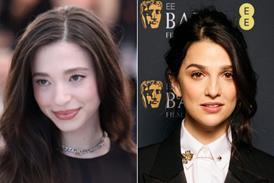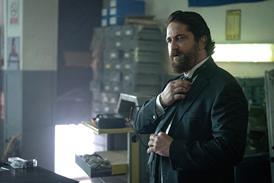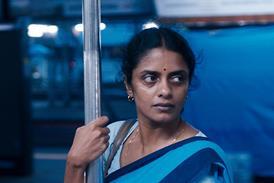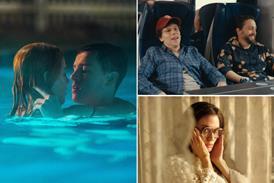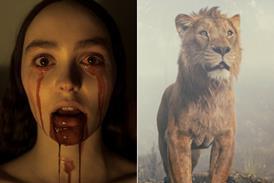Dir: Lisandro Alonso. Argentina-Denmark-France-Mexico-Germany-Brazil. 2014. 108mins
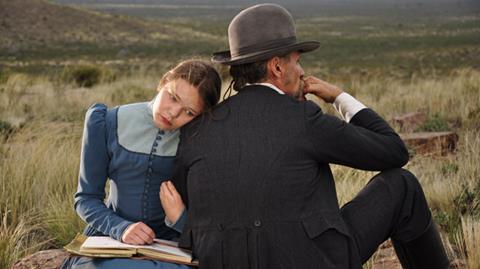
A man makes his way very, very slowly across a desolate Patagonian landscape. This far, at least, we’re in familiar territory with Jauja, the latest from Argentinian director Lisandro Alonso, Latin America’s foremost exponent of what’s come to be known, for better or worse, as ‘slow cinema’. But both in its tone and in the twists of what proves a stranger journey than usual, Jauja is a singular departure for a director who has hitherto specialised in something that, however stylised, has recognisably been essentially realism.
As ruminative as Alonso’s other films, Jauja ends up taking us to completely unfamiliar terrain, the film hinting at the sort of mystical or metaphysical journe.
A more magical, philosophical and indeed surreal trip than we’re used to from him, Jauja is likely to divide Lisandro’s admirers, purists liable to balk at the story’s dream elements. The film is unlikely to score Lisandro a cross-over hit, exactly, but its mystical dimension, plus the presence of Viggo Mortensen in the lead, should bolster its cult appeal considerably. Beyond very niche export prospects, expect Jauja to be hotly debated at festivals.
The film is also Alonso’s first historical drama, and his first - improbably - in the Danish language. A title card tells us of a fabled El Dorado-like land known as Jauja, which many have sought in vain, getting lost along the way - which sets up for the sort of drifting peregrination that we’re used to from Alonso. But it’s clear from the film’s first few highly composed, hotly coloured images that we’re dealing with something very different from usual.
The film is shot in boxy Academy ratio, with rounded corners on the frame adding to the sense that we’re looking at an echo of silent cinema. The film is indeed set in the 19th century, in 1882 in the desolate expanses of Patagonia, where Danish army officer Dinesen (Mortensen) is leading an expedition, presumably to Jauja, accompanied by his 14-year-old daughter (Agger).
One of Dinesen’s men, seen at the start masturbating in a rock pool, has designs on the girl - and before long, she leaves the seal-inhabited coastline where the action begins, to head inland, eloping with a young soldier who becomes her lover. Dinesen takes off in pursuit, aware that the territory is frequented by a soldier who has reputedly gone native, in time-honoured and brutal Colonel Kurtz style.
After a long introductory section featuring more dialogue than we’re used to from Alonso - the poised, somewhat literary tone of these scenes recalling Manoel de Oliveira - much of the action then follows Dinesen alone on horseback as he makes his way through a strikingly stark desert landscape. After a bloody encounter that comes as a bolt from the blue, he proceeds on foot through mountainous terrain - with Mortensen athletically earning his fee through some hard slog - before mysteriously acquiring a stray wolfhound as guide.
What happens next - an encounter in a cave with a strange elderly woman (Norby) puts the film into an entirely different register of reality - but that’s nothing compared to a coda which comes in from left-field and will leave viewers either delighted or scratching their heads raw.
As ruminative as Alonso’s other films, Jauja ends up taking us to completely unfamiliar terrain, the film hinting at the sort of mystical or metaphysical journey one might normally associate with films such as Jodorowsky’s El Topo or indeed 2001: A Space Odyssey (obliquely hinted at in the coda). Timo Salminen’s photography makes the box if the unusual ratio, the images precisely composed, whether people are in imposing close-up or way off in the desert distance, with reds, greens and blues magnetically heightened. Alonso co-wrote the script with poet Fabian Casas, and the effect is nothing if not poetic.
Production companies: Films du Worso, 4L, Perceval Pictures, Fortunal Films, Mantarraya, Massive, Kamoli Films, The Match Factory, Wanka
International sales: NDM, www.mantarraya.com
Producers: Viggo Mortensen, Ilse Hughan, Sylvie Pialat, Jaime Romandia, Andy Kleinman, Helle Ulsteen, Michael Weber, Ezequiel Borovinsky
Screenplay: Fabian Casas, Lisandro Alonso
Cinematography: Timo Salminen
Editor: Natalia Lopez, Gonzalo Del Val
Production designer: Sebastian Roses
Music: Viggo Mortensen, Buckethead
Main cast: Viggo Mortensen, Ghita Norby, Viilbjork Mallin Agger, Adrian Fondari





